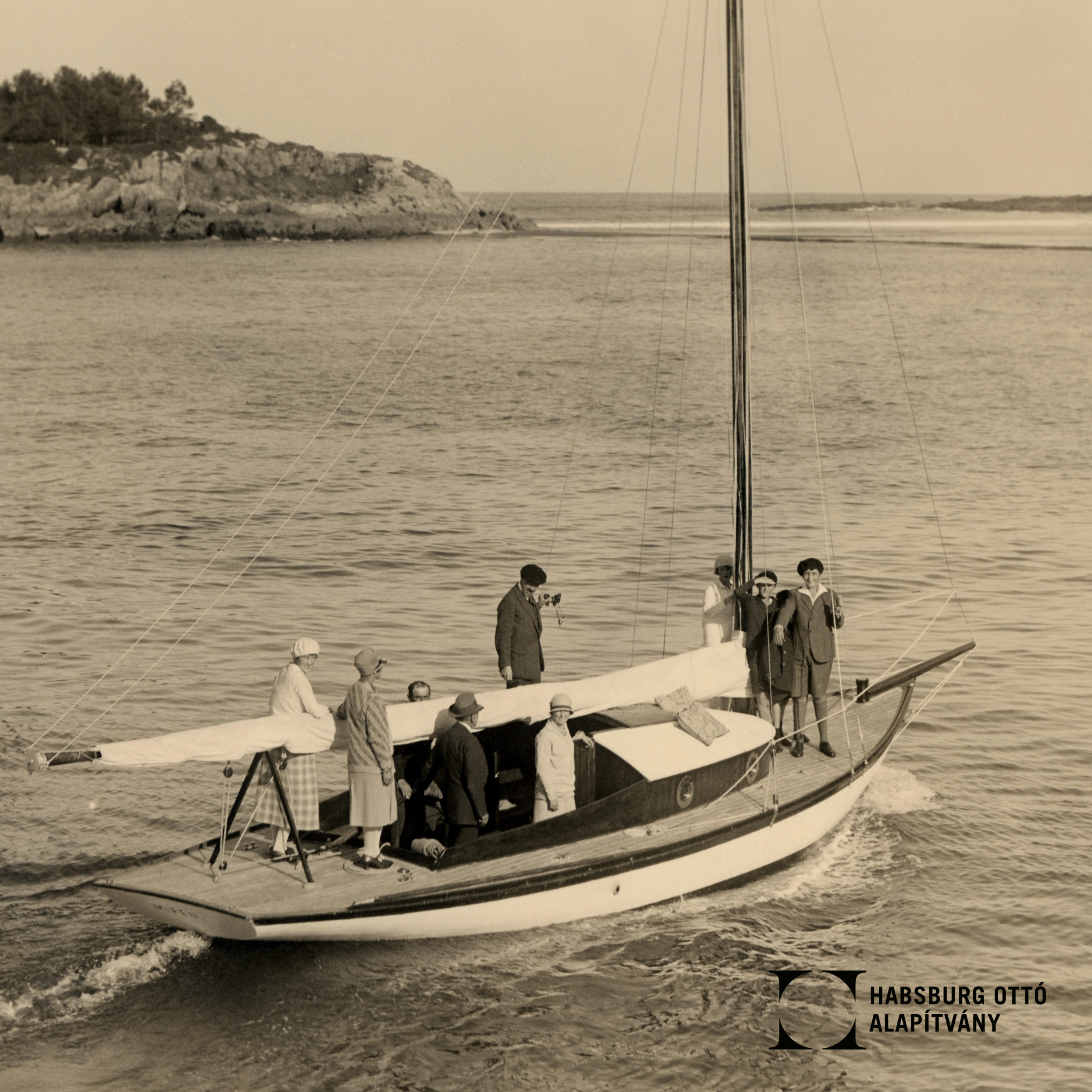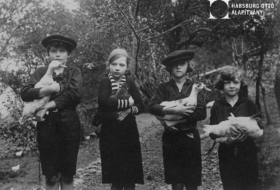The photograph was taken in the mid-1920s in Lekeitio, Spain, where the widowed Queen and Empress Zita had been living with her eight children since 1923. Their daily lives followed a rigorous and thorough routine, with particular attention devoted to the education of the heir to the throne, Otto von Habsburg. In addition to the guidance of the Hungarian Benedictine monks, the locals also stood alongside Otto during these formative years, and sport, sometimes sailing, formed part of his personal development. Standing on board with his siblings, governesses, and the vessel owner’s family, the smart young gentleman looks confidently into the camera, focusing on them from the shore. This period was recorded in the diary of another passenger, the man holding the binoculars, Heinrich Degenfeld.
The Hungarian legitimists organised a celebration in Budapest in 1923 as well to mark the birthday of the Crown Prince. There is no doubt the celebrant was aware of this. It was only much later, however, that he learned that around this time, a certain Hungarian poet named Lőrinc Szabó had written a poem entitled “Hazám, keresztény Európa” (My Homeland, Christian Europe). The closing lines of this piece, which express concern for the fate of the Old Continent, echo the most important question that occupied the mind of Otto von Habsburg, who is now sailing from exile into new waters to eventually become a member of the European Parliament:
“my homeland, sorrowful Europe,
should you survive the end of hostilities,
will you still be able to bear God,
Love and Peace?”
We hope the more tranquil period that awaits us all at the turn of 2023–24 will help us discover the answer.


